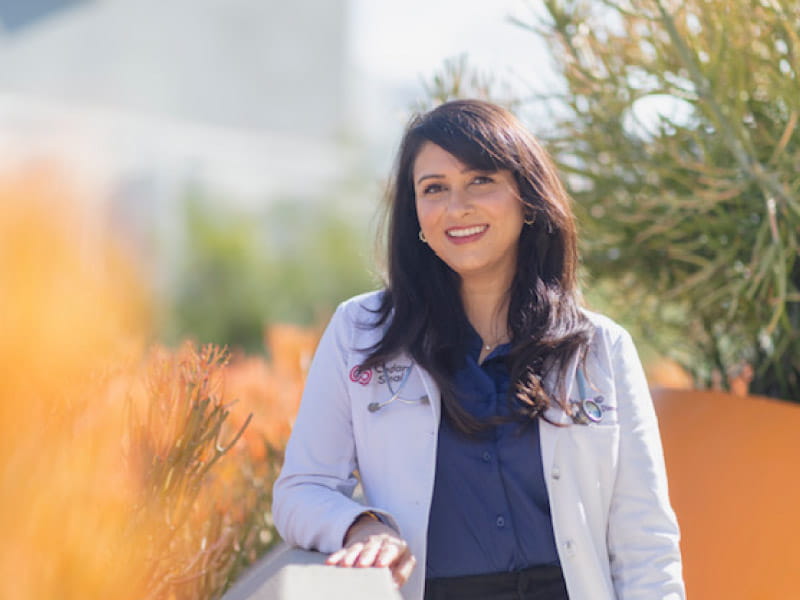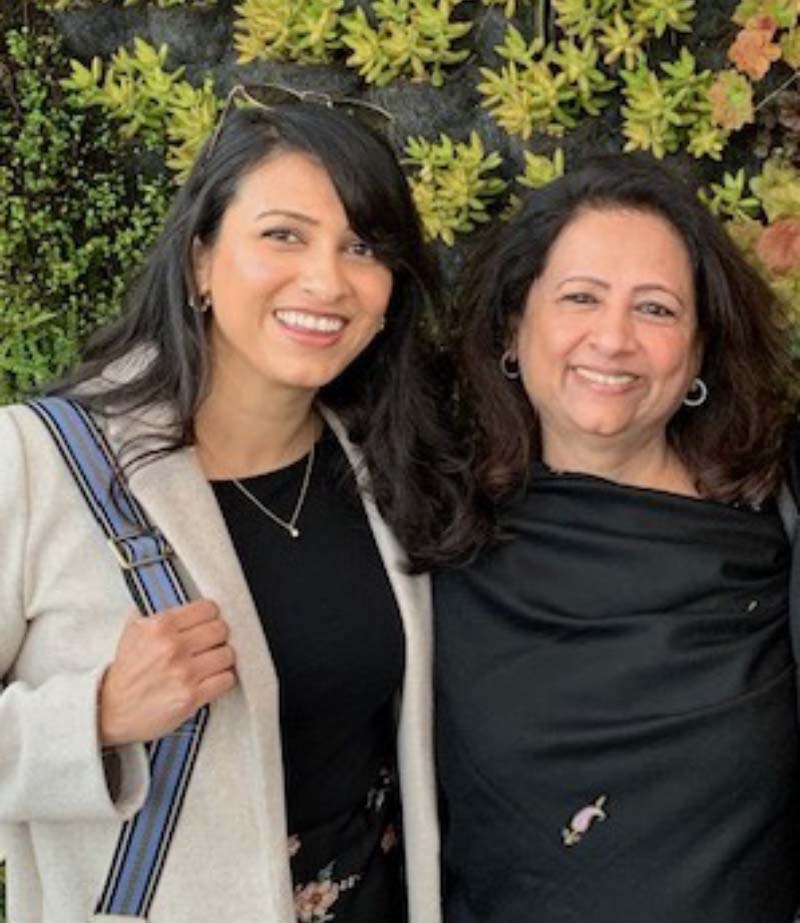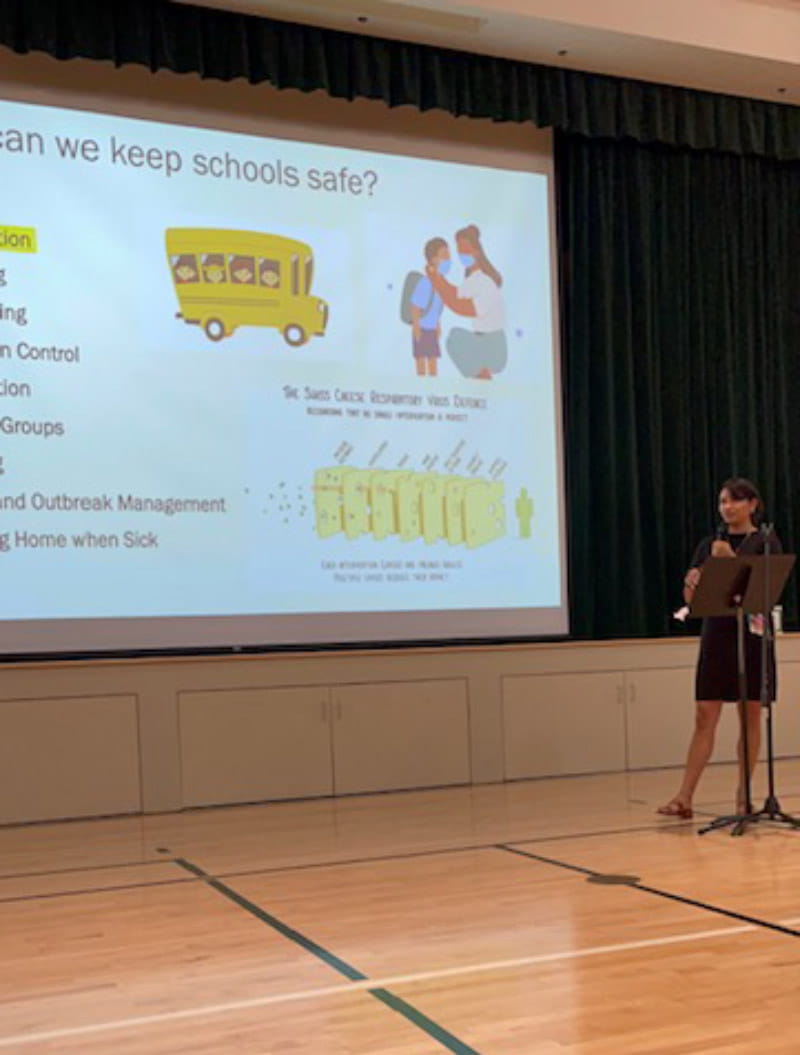Her upbringing and training shaped this doctor's view of infections and vaccines
By Laura Williamson, American Heart Association News

Dr. Priya Soni remembers the childhood hand-washing lessons her mother taught. She didn't just make Soni wash her hands before meals, or insist she clean up after playing outside.
Soni's mother, a microbiologist who ran her own lab, had her wash one hand and then put both in a petri dish to illustrate the difference good hygiene made in removing harmful germs.
"From a pretty young age, my mother made science come alive for me," said Soni, 38, now an assistant professor of pediatric infectious diseases at Cedars-Sinai in Los Angeles. "She showed me how microbes shaped the world around me."
Her mother's lessons spawned Soni's interest in medicine and motivated her to become a doctor. She talks about her work in infectious diseases, including the measles, for "The Experts Say," an American Heart Association News series in which specialists explain how they apply their professional knowledge to their own lives. Her remarks have been edited.
Why did you decide to specialize in pediatrics and infectious diseases?
My journey into medicine started early. I grew up curious about the world of microbiology and infectious diseases and not so scared of it. But my interest in pediatrics came once I was in medical school. As a teen, I had spent all of my free time babysitting or teaching children about Hindu culture at my temple. I realized that children were a part of my life in every phase.
During my undergraduate training, I was exposed to global health projects. I saw how infectious diseases disparately affected places with fewer resources.
One of my most vivid college memories is from when I was working in Guyana. I met a boy who lived in the pediatric ward of a hospital. He had HIV. His parents had died from AIDS-related illnesses, and he was sort of disowned by his grandparents because of the stigma surrounding HIV. I remember playing with him every day and realizing how complex these infections are. Infections don't just affect individuals; they affect families and communities, especially in under-resourced populations.
My experience in Guyana really opened my eyes to this new world. To me, it was very clear I wanted to make an impact on this field and learn everything I could about it. It's vast. There are so many infections we need to become experts in when we are dealing with children.
But in preventing an illness in a child, you have the ability to change the trajectory of their entire life, which is amazing.
Do you plan to teach your own children about science the way your mother taught you?
Absolutely. It's important to expose children to things early on. Microbes are a part of our world, and they're not going anywhere. I want my children to know the things that I know. Expose them to that invisible world of microbes.
I'd tell them that microbes are invisible creatures that are all around us, even inside of us. Some are friendly and help us digest food or fight off bad bugs, and some can make us feel yucky if they end up in the wrong place or take over.
I think if you can make science feel like a story, it becomes something kids want to explore and not just memorize. That's how my mom inspired me, and it's definitely something I want to pass on.

The U.S. is currently dealing with hundreds of measles cases, even though measles was considered eliminated in the U.S. in 2000. Why is this happening?
In some communities, families are delaying or skipping vaccines, and it's leaving pockets of communities vulnerable.
While it's hard to say that one vaccine is the most important for your child, knowing the complications of measles in children, I can certainly say it's one of the most important vaccines. This is something I feel very strongly about. Even a small dip in vaccine rates can quickly lead to outbreaks.
Measles is a highly transmissible disease. If one person has measles, 9 out of 10 people nearby without immunity will get the infection, according to the Centers for Disease Control and Prevention. We have very few infections with such a high transmissibility rate.
Why are measles harmful, and who is at highest risk?
There are so many dangers associated with getting the measles. Some are immediate and some are longer term. An infection can lead to severe complications and even death.
According to the World Health Organization, measles can lead to complications such as blindness, severe diarrhea, ear infections and severe breathing problems, including pneumonia. It can also cause encephalitis, or swelling in the brain, and can lead to long-term brain damage. Most deaths from measles are due to complications.
People most vulnerable to measles complications are unvaccinated children, pregnant women and people with weakened immune systems, such as from cancer treatment or an organ transplant.
How does measles affect cardiovascular and brain health?
Measles can increase the risk of myocarditis, which is an inflammation of heart muscle that can induce arrhythmias and long-term vascular damage.
After you get the measles, your immune system is weakened so you are also susceptible to secondary infections, including those that affect the heart.
Even if you don't have complications at the time of infection, measles can cause a brain disorder that doesn't appear until years later, called SSPE, or subacute sclerosing panencephalitis. It's devastating because you think you're in the clear, but SSPE can still present up to 10 years after the initial infection – and it can be fatal.
SSPE usually happens to children or young adults who get the measles at a very young age – less than 2 years old. The virus stays in the brain and spreads from cell to cell. It does not get cleared, so it leads to chronic inflammation that causes neurodegeneration. Children who get infected will be fine for years, then suddenly develop personality changes or deteriorating school performance. Sometimes there is memory loss, which can lead to seizures and dementia. Ultimately, it can lead to a pretty bad vegetative state and, finally, death. It cannot be cured.
How effective is the measles vaccine?
The measles vaccine is part of the MMR series, which also includes mumps and rubella. It's a live vaccine, which means you are getting a dose of a weakened virus that does not cause full-blown illness in a healthy individual. Getting two doses provides lifelong protection in most people. This vaccine is safe, and it's one of the most effective vaccines that we have.
I think it's important to understand that no vaccine is going to be 100% perfect. But this one, for the measles, is very close. People need to understand how highly effective this is. With two doses, you get about 97% efficacy, according to the CDC.
This is an infection you never want to get. The complications are so variable and can be quite devastating even decades after infection.

Who needs to get vaccinated and when?
The measles vaccine requires two doses for full protection, at least 28 days apart. If you've had one dose but skipped the second, it can be given later at any time. You don't need to restart the series.
Children get the first dose of this around 12-15 months of age and a second dose from 4-6 years old.
The first licensed measles vaccine was in 1963. But starting in 1968, the vaccines used were much more effective. If you were born after 1957 and vaccinated before 1968, you should get vaccinated again.
(Editor's note: More information about the measles vaccine can be found on the CDC website.)
How do you apply what you know about infectious diseases to your own family and community life?
I do advocacy out in the community in Los Angeles. Local elementary and middle schools often have me give a brief talk to parents, both in person and virtually, during which I answer questions about measles and other illnesses and the safety of vaccines. My advice is always the same: Have open conversations with your pediatricians and discuss any hesitance you may have.
There are so many misconceptions about vaccines – fallacies that get passed around the community – so I love doing Q&A sessions where I break down the myths.
Vaccines train our immune system to recognize and fight the virus before it has a chance to cause severe disease. It's such a great tool we have in modern medicine. It's the best way to protect yourself and your family and community.





